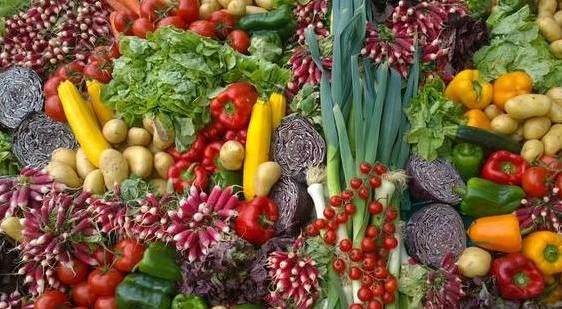Home » Top vegetables to grow in your garden

Top vegetables to grow in your garden
-
What could be better than breezing out to the garden on a summers day to snip some freshly grown salad and herbs to accompany your meal? Why not make a new year’s resolution to grow some vegetables in your garden?
Gardening organically can be more challenging, but by working in harmony with the diversity of soils and insects in your garden patch, you can maximise your success and your harvest.Top vegetables and fruit for your vegetable patch:
Root vegetables – including carrots, potatoes, beetroot and parsnips all can grow overwinter and require less maintenance.
Fruit trees such as plum and apple are easy to grow and are a good alternative to imported varieties which make up 90% of the supermarket stock.
Fruit bushes such as raspberries and blueberries are good and easy to grow. Tomatoes are a great one too especially if you have a sunny space in the garden.
Salad and kale will provide healthy greens for the table throughout the growing season.Top tips for success
- Use a thick mulch of manure or leaf mould between plants to act as fertiliser and to keep down weeds.
- To promote beneficial insects, consciously plant 10% of your garden with plants such as borage, mint or cornflowers (see list below) that encourage beneficial insects.
- Ensure you plant the things that you like to eat and not too much of anyone variety or you could end up with a glut and organic vegetables need to be consumed quickly.
- Rotate crops on a four-year rotation schedule – legume, root, leaf, fruit.
- Plant companion crops, such as spinach, basil, corn, cabbage, peas or petunias with potatoes. Many vegetables have favourite companion plants that will encourage growth, condition the soil, keep away pests or encourage beneficial insects in a reciprocal relationship.
- Weeds always grow quicker than vegetables. Practice good gardening hygiene, remove any dead/diseased plants and leaves quickly. Deal with weeds regularly either using mulch of grass clippings, leaf mould or compost.
- If you are new to gardening, buy organic seedlings or plants rather than seeds. Make sure the plants are organic and come in biodegradable/plastic-free packaging! Seeds are more economical but are more work 8ntensive.
- Ensure the plants get plenty of daylight. For this reason, it may be a plus to grow vegetables in moveable containers.
- Give plants plenty of water and air – for the best growing, plants need room to breathe. Plant at the distances recommended on the pot/seed packet.
- For fruits, employ netting, or you may be feeding the local bird population your crop!
Top Beneficial plants for organic veg growing:
Borage – adds nutrients that boost disease resistance in nearby plants.
Sweet Alyssium – plant near potatoes and beans as it encourages wasps that feed on aphids.
Alfalfa – plant with beans and lettuce, it adds nutrients to the soil.
Mint – encourages earthworms to condition the soil, plant with cabbage family
Marigolds – keeps away root pests.
Lavender – plant with fruit trees as encourages bees and ladybirds.
Nastursium – plant with cabbages and fruit trees to repel aphids.

